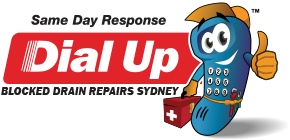Worried Your Drain is Blocked?
Get $50 OFF when you book a blocked drain service today.
Request a Call Back
Typical response is within 10 minutes during business hours
If you need URGENT ACTION
1300 152 450
3 Reasons Customers Choose Us
Responsive | Reliable
Customers can track their plumber on the way to the job.
Quality Work
Our licensed plumbers use the latest technology.
Value
We provide honest assessment of the work required with transparent pricing.
Main Causes of Blocked Drains
Tree roots can grow into drains and cause blockages. This is especially common in older homes with clay pipes.
Broken pipes can allow dirt, debris, and other materials to enter the drain, which can cause blockages.
Grease and fat solidify when they cool, and can build up over time to form a blockage. This is especially common in kitchen drains, where grease and fat from cooking can be washed down the drain.
Hair can also build up and cause blockages, especially in shower and bath drains.
Food scraps can also cause blockages, especially if they are not properly disposed of. Food scraps can swell in water and form a blockage.
Foreign objects, such as toys, jewellery, and feminine hygiene products, can also cause blockages.
Hard water contains minerals that can build up in pipes and cause blockages.
If a drain is not properly installed, it may be more likely to become blocked.
7 Tips to Prevent Blocked Drains
If you have a blocked drain, it is important to clear it as soon as possible. Blocked drains can lead to flooding, sewage backups, and health hazards.
There are a number of ways to clear a blocked drain, depending on the cause of the blockage. For example, you can use a plunger, a drain snake, a water blaster or a chemical drain cleaner. If you are unable to clear the blockage yourself, you may need to call a plumber.
Here are some tips to help prevent blocked drains:
- Avoid pouring grease and fat down the drain. These substances can solidify and cool, causing blockages. Instead, dispose of them in the trash or compost bin.
- Use a strainer to catch food scraps before they go down the drain. Food scraps can decompose and form blockages over time.
- Dispose of foreign objects properly. This includes toys, jewelry, feminine hygiene products, and other items that do not belong in the drain.
- Use a garbage disposal sparingly. Garbage disposals can break down food scraps, but they can also grind them into small pieces that can get stuck in the pipes.
- Have your drains inspected and cleaned regularly by a plumber. This can help to remove any build-up of grease, hair, and other debris that could lead to blockages.
- Treat hard water with a water softener. Hard water contains minerals that can build up in pipes and cause blockages.
- Repair any broken pipes as soon as possible. Broken pipes can allow dirt, debris, and other materials to enter the drain, which can cause blockages.
- Ensure that your drains are properly installed. If a drain is not properly installed, it may be more likely to become blocked.
- Flush the toilet only with toilet paper. Flushing other items, such as feminine hygiene products, baby wipes, and paper towels, can cause blockages.
- Be careful what you put down the sink. Avoid putting chemicals, such as paint thinner and drain cleaner, down the sink. These chemicals can damage the pipes and cause blockages.
By following these tips, you can help to prevent blocked drains and keep your plumbing system in good condition.
